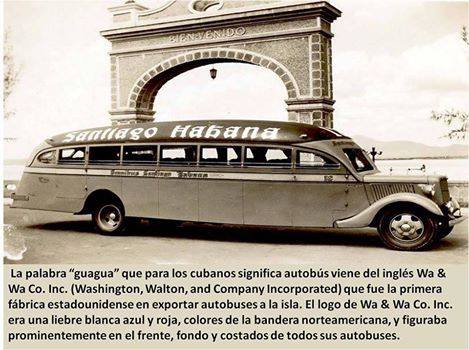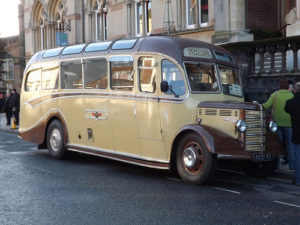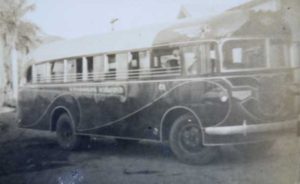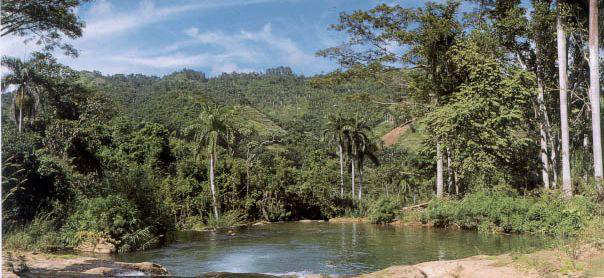Perhaps we would have to start by saying that the word guagua is used in the expression of guagua and as a noun, equivalent in this case to a bus. The expression of guagua, ‘de balde’, is older and recorded in America and Spain in the nineteenth century.
The word “guagua” for Cubans means bus comes from the English Wa & Wa Co. Inc. (Washington, Walton, and Company Incorporated) which was the first US factory to export buses to the island. The Wa & Wa Co., Inc. logo was a blue and red white hare, colors of the American flag, and featured prominently on the front, bottom and sides of all its buses.
Given this, it is probable that, after the war for the independence of Cuba (1898), the immediate American occupation and the subsequent economic dependence, in the West Indian island these types of vehicles were in use.
VERSION “IR DE GUAGUA”.
And speaking of children, buses and buses, we will tell you that during the colonial period the Spanish government of Peru ordered that children under the age of six would be admitted free of charge at public shows and public transportation. From there came the popular phrase “to travel by bus” that was equivalent to free travel. During that time civil and military works were carried out in Havana in the Vedado area.
The Cuban Esteban Pichardo (1836) was the first to register it, according to Corominas. However, this author in his Etymological Critical Dictionary does not give a date for the documentation of bus ‘bus’, although for him the term ‘is Cuban of course’, and he thinks that it can be adaptation of English waggon, ‘carriage’. The Americans, it is reported, called the military transport carriages and a medium-sized car used for the free transportation of people.
Soon the habaneros and all Cuba extended that denomination to all transport of passenger
As for the Canaries, bus ‘bus’ is not recorded in vocabularies of the first two decades of the twentieth century. J. Reyes (1918), for example, who registers for Tenerife the expression of guagua, does not record guagua as an equivalent term for bus. Later, Luis and Agustín Millares, who do it in Lexicon of Gran Canaria (1924) and How the Canaries Speak (1932), speak of the American origin of the term. According to them, the buses were then “buses, now automobiles, which operate the transport service between the two extreme points of the population: Puerto de la Luz and San José neighborhood.”
In Tenerife, according to the testimony of older people, in the early 1940s the gardener voice was used to designate the public transport vehicle, and it was during those years that the voice bus instead of bus, term that had never been used, but a gardener.
Thus, given the above and, above all, that the first lexicographers who record guagua speak of their American origin, it seems more logical to think that said voice has come from Cuba to the Canaries, as one more element of the luggage that, his return, brought our emigrants.
PROCEDENCIA DE LA PALABRA “GÚAGUA” Y LA “DE ÍR DE GUAGUA”.
Tal vez habría que empezar diciendo que la palabra guagua se usa en la expresión de guagua y como sustantivo, equivalente en este caso a autobús. La expresión de guagua, ‘de balde’, es más antigua y se registra en América y España en el siglo XIX.
La palabra “guagua” que para los cubanos significa autobús viene del inglés Wa & Wa Co. Inc. (Washington, Walton, and Company Incorporated) que fue la primera fábrica estadounidense en exportar autobuses a la isla. El logo de Wa & Wa Co., Inc. era una liebre blanca azul y roja, colores de la bandera norteamericana, y figuraba prominentemente en el frente, fondo y costados de todos sus autobuses.
Visto esto, es probable que, después de la guerra por la independencia de Cuba (1898), la inmediata ocupación americana y la posterior dependencia económica, en la isla antillana estuvieran en uso dicho tipo de vehículos.
VERSION “IR DE GUAGUA”.
Y hablando de niños, ómnibus y guaguas le diremos que durante la época colonial el gobierno español del Perú, ordenó que en los espectáculos y transporte públicos los niños menores de seis años serían admitidos sin pagar nada, gratis! De ahí surgió la frase popular “viajar de guagua” que equivalía a viajar gratis. Durante esa época se realizaban en La Habana obras civiles y militares en la zona del Vedado.
El cubano Esteban Pichardo (1836) fue el primero en registrarla, según Corominas. En cambio, este autor en su Diccionario Crítico Etimológico no da fecha para la documentación de guagua ‘autobús’, aunque para él dicho término “es cubano desde luego”, y opina que puede ser adaptación del inglés waggon, ‘carruaje’. Los americanos, según nos informa, denominaban así los carruajes de transporte militar y un automóvil mediano empleado para el transporte gratuito de personas.

Pronto los habaneros y toda Cuba hizo extensiva esa denominación a todo transporte de pasajero
En cuanto a Canarias, guagua ‘autobús’ no se registra en vocabularios de las dos primeras décadas del siglo XX. J. Reyes (1918), por ejemplo, que registra para Tenerife la expresión de guagua, no registra guagua como término equivalente a autobús. Más tarde, Luis y Agustín Millares, que sí lo hacen en Léxico de Gran Canaria (1924) y Cómo hablan los canarios (1932), hablan del origen americano del término. Según ellos, las guaguas eran entonces “los ómnibus, hoy automóviles, que explotan el servicio de transportes entre los dos puntos extremos de la población: el Puerto de la Luz y el barrio de San José”.
En Tenerife, según testimonio de personas mayores, todavía en los primeros años de la década de los cuarenta se empleaba la voz jardinera para designar al vehículo de transporte público, y fue por esos años cuando se extendió rápidamente, a partir de la capital, la voz guagua en lugar no de autobús, término que nunca se había usado, sino de jardinera.
Así, pues, teniendo en cuenta lo anterior y, sobre todo, que los primeros lexicógrafos que registran guagua hablan de su origen americano, parece más lógico pensar que dicha voz haya venido de Cuba a Canarias, como un elemento más del equipaje que, a su regreso, traían nuestros emigrantes.
Agencies/Wiki/Various/Internet Photos/Arnoldo Varona/TheCubanHistory.com
THE CUBAN HISTORY, HOLLYWOOD.







